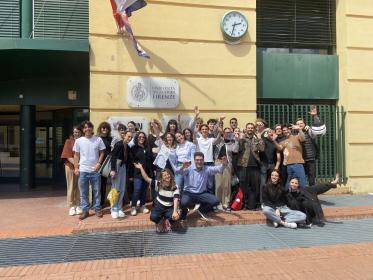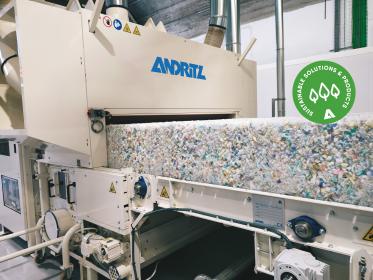Schmitz Textiles: Hackathon with Italian students
As part of the European Erasmus+ project AddTex, the partner organisations organised several hackathons at the universities of Boras (Sweden), UPC (Spain), PIN (Italy) and TUS (Ireland) in May. The aim is to connect students with real challenges in the industry and promote innovation in the areas of ecology, sustainability, digitalisation and design. The participants had received basic information in advance through the 45 training videos and training sessions of the free and public Smart, Digital and Green Skills Academy at https://addtex.eu.
The hackathon at the Italian university PIN (Polo Universitario Città di Prato) was organised and held together with the technical textiles department of the Industrieverband Veredlung - Garne - Gewebe - Technische Textilien e.V. (IVGT). Eight teams competed to develop innovative, sustainable ideas in just a few hours for the German family business Schmitz Textiles GmbH & Co. KG, Emsdetten. Schmitz Textiles, an expert in complete textile solutions for indoor and outdoor use for over 100 years, plans to offer exclusively sustainable products in the medium term and is looking for solutions to continuously increase the existing recycled share of yarns to 100 per cent.
Stefan Schmidt from IVGT presented the challenge via Teams Conference: "We are looking for a new business model for textile recycling at awning manufacturer Schmitz-Textiles in order to increase the existing proportion of recycled yarns and go beyond the exclusive use of recycled PET bottles. Schmitz Textiles has had an awning fabric made from 100% recycled polyester in its range since the end of 2023. The medium-term goal is to switch the entire range of awning fabrics to 100% recycled yarns. The company is looking for suitable solutions to achieve this.
In small teams, the 30 students specialising in eco-design, textiles/sales and textiles/technology developed proposals and presented them in five-minute online pitches. Ralf Bosse for Schmitz Textiles and Iris Schlomski for the IVGT acted as the jury and assessed the individual presentations in the categories of degree of innovation, presentation, industrial application potential and potential for commercial success. Each idea presented and each presentation scored more or less points in the individual categories. In the end, the points scored were added up to determine the winning team, which can further develop its idea together with the company. For Schmitz Textiles, these are Eleonora Boccherini, Ilaria Ioja, Giorgio Gacci and Marianna Butera.
IVGT









